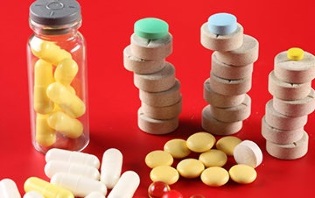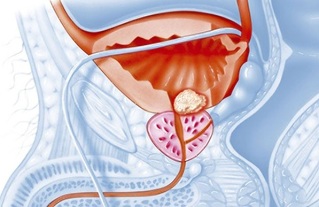
A balanced approach to the selection of essential and complementary drugs is needed to identify prostatitis.
For successful therapy, you need to visit a urologist, buy cheap and effective drugs against prostatitis, as prescribed by your doctor.
What are the most effective pills for prostatitis
Many men hope to find a cure for inflammation quickly and completely in the affected gland.
The disease has a number of different negative manifestations: pain, urinary retention, smooth muscle spasms, which require the use of several groups of drugs.
A complex of drugs is prescribed for chronic and acute prostatitis:
- Antibacterial compounds.
- Drugs (often of plant origin) to activate metabolic processes in the prostate gland.
- Antispasmodics and analgesics.
- Anti-inflammatory names.
- Circulatory enhancing compounds.
Various synthetic and natural drugs are used to treat prostatitis.
The pharmacological category of drugs is more effective in the acute inflammatory process. Herbal medicines are more often prescribed for the chronic form of pathology, to prevent relapses.
Preparations for inflammation of the prostate
You should not take pills or use rectal suppositories to help a colleague or relative: when prescribing medications, your doctor will consider the form of prostatitis, the extent of prostate damage, the nature of the restrictions, the type of pathogen. Improper treatment does not work, interferes with the early cessation of the inflammatory process and is detrimental to health.
In case of chronic prostatitis

The main task is to prevent relapses. The pain syndrome is mild, the discomfort is moderate, and the urination process is partially restored.
Optimal drug complex for chronic prostatitis:
- compounds for activating blood circulation;
- muscle relaxants;
- symptomatic treatments;
- alpha-blockers;
- soothing herbal decoctions and tinctures;
- drugs to normalize metabolic processes in the prostate;
- vitamins and restorative preparations.
In case of acute prostatitis
The main task is to stop the pathological process and prevent further progression of the disease. The urologist prescribes medications that prevent the acute form of prostatitis from progressing to a chronic state.
Effective drug groups and names:
- Antibiotics. Drugs suppress the activity of infectious agents.
- Anti-inflammatory drugs. The name of the NSAID group stops the pathological process, eliminates swelling of the prostate tissues and reduces pain. In case of severe inflammation, strong hormonal agents are prescribed in a short time.
- Analgesics and antispasmodics.
Anti-inflammatory
In prostatitis, the following groups are used:
- Non-steroidal anti-inflammatory drugs (NSAIDs).Active suppression of the inflammatory process, reduction of pain and swelling. The long-lasting effect of the new generation formulations allows you to take 1 tablet per day. It is important to consider the condition of the digestive system: non-selective NSAIDs actively irritate the mucous membranes.
- Hormonal drugs.Medications are prescribed for severe pathological process, severe pain, and low efficacy of NSAIDs. The course of treatment is 7-28 days.
- Specific preparations to combat inflammation of the prostate.Preparations in the form of suppositories and tablets.
Analgesics
Analgesics - second-line drugs (adjuvants) in the treatment of prostatitis. It is more often prescribed in the acute course of the inflammatory process in the background of excruciating pain. NSAIDs and painkillers are used to reduce pain.
A strong anesthetic is prescribed for severe discomfort, with a cure of up to 5 days.
Some medications (injections and suppositories) not only relieve pain but also eliminate blood clots, reducing swelling of the prostate gland.
Antibacterial
When an infectious agent is identified after analysis of a biomaterial, the urologist assigns names whose components suppress the activity of the pathogen.
In case of chronic prostatitis, a person receives tablets, against the background of an acute course - injections and preparations for oral administration.
It is important to destroy the lesion and prevent the infection from spreading to neighboring areas.
Improve blood circulation
Prolonged prostatitis results in pain and congestion without proper therapy.
Against the background of poor blood circulation and tissue edema, antibiotics are less absorbed and the effectiveness of treatment decreases.
In parallel with antibacterial compounds, the urologist prescribes drugs to improve the blood supply to prostate tissue.
Stabilize prostate metabolism
It is important to periodically monitor the chronic form of the disease to prevent it from getting worse.
It is impossible to interrupt therapy prematurely if symptoms are less pronounced or disappear: violation of instructions reduces the effect of preparations to restore prostate function.
Antibiotics
The urologist selects the optimal form of the drug based on the results of the bacterial culture. During the test, the laboratory assistant shall indicate on the decoding sheet the active substances which are most harmful to the micro-organism identified.
Antibiotics in several groups have a good effect on the treatment of prostatitis:
- Macrolides.High efficacy of treatment in the detection of mycoplasma and chlamydia.
- fluoroquinolones.Broad-spectrum drugs.
- For tetracyclines.Active effect on chlamydia and mycoplasma, but more side effects than macrolides.
- New generation penicillinsin combination with clavulanic acid. Modern drugs show high therapeutic efficacy in the background of good tolerance.
Popular cheap products
Unfortunately, many drugs used to treat inflammation of the prostate belong to a high price range. The cost of treating a chronic form of the disease increases with the long-term cure use of the formulations.
It is quite difficult to find an effective tool at an affordable price. It is important to consider the number of suppositories, ampoules, capsules or tablets in the package.
Reviews
There are many opinions about cheap drugs to treat prostatitis. Many men note that the combination of antibiotics, antispasmodics, and drugs works to be highly effective in improving prostate metabolism.
There are also a number of negative opinions about the nature of treatment, especially the chronic form of the disease. The majority of negative opinions are related to the hope of eliminating the signs of pathology as soon as possible, but in case of recurrent prostatitis, a long (up to 6 months) drug is required, and the schedule of administration should be strictly adhered to.
Many men violate instructions, take shorter courses than they should, drink alcohol, smoke, continue to lead a sedentary lifestyle, and do not participate in physical therapy or self-medication.
With this approach to therapy, even the latest anti-inflammatory drugs and the advice of an experienced urologist will not help.
It is important to consider this point before starting treatment to avoid disappointment and neglected pathological events.
Treating recurrent inflammation of the prostate gland requires not only patience and accurate implementation of the doctor’s recommendations, but also significant financial costs. Doctors advise treating the disease at an early stage so that the acute form does not become chronic.
























